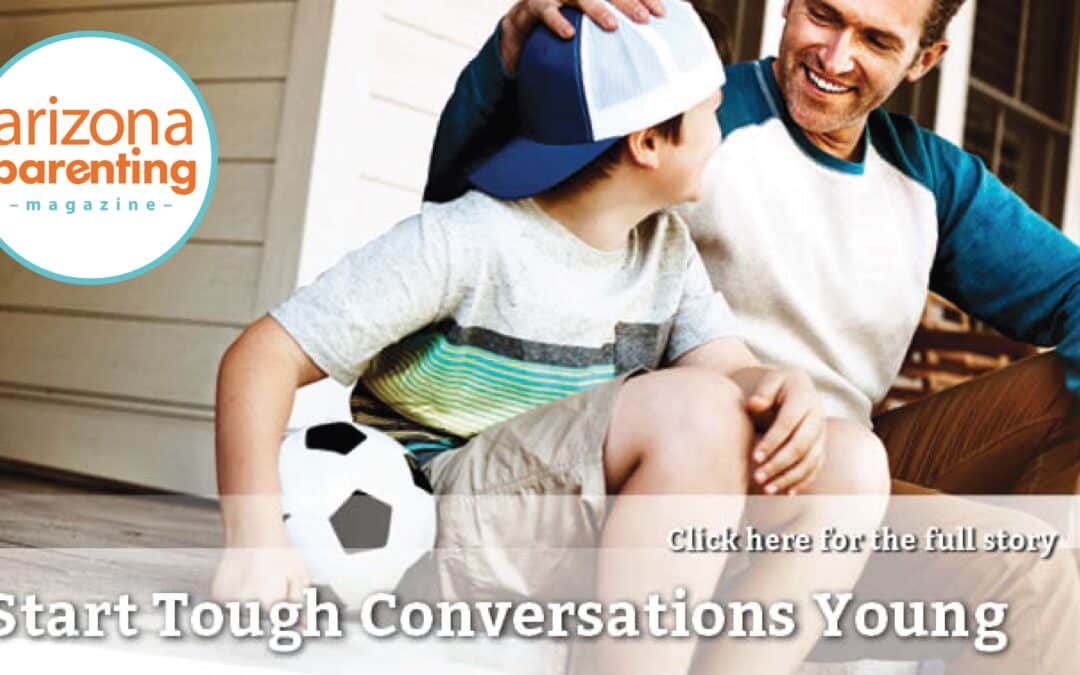By Nikki Kontz, LMSW, Clinical Director at Teen Lifeline
Parents of school aged children often ask at what age they should start talking with their kids about mental health and suicide. The answer is: much younger than most parents probably realize.
Children as young as eight-years-old call the Teen Lifeline crisis hotline for help. In fact, during the past decade, Teen Lifeline has received an increasing number of calls from younger children. While 10 years ago, only 8% of calls came from children under age 13, today nearly 30% of our calls come from this age group.
The thought of discussing suicide with your child may seem daunting. But it’s important to know that talking about suicide won’t put the idea in your child’s head or cause suicide. Instead, talking about it can help create an environment where children know they can ask questions or discuss the things they hear at school, on TV, in popular music or in video games.
So, when is the right time to talk to your kids about suicide, and how can you do it in a way that’s both age-appropriate and effective?
Talk about emotions with young children
It’s never too early to begin talking with your child about their feelings. For young children, these discussions don’t need to directly address suicide but should focus on understanding and expressing their emotions. Begin by teaching your child to identify emotions like sadness, anger and fear. Make sure your child knows they can come to you for help when they are upset.
By normalizing conversations about emotions when a child is young, you lay the groundwork for more complex discussions as they get older.
Talk about mental health with kids ages 7-10
As your child enters elementary school, you can begin introducing the concept of mental health in a way that they’ll understand. You might start by explaining that just like we can get sick in our bodies, sometimes our minds can feel unwell too. Use language that’s simple and reassuring, emphasizing that it’s okay to ask for help when they feel upset or confused.
At this stage, focus on teaching children about coping skills, resilience and the importance of talking to an adult they trust if they ever feel overwhelmed or sad.
Talk about warning signs with ages 11-14
During the middle school years, you’ll want to have more direct conversations.
Ask open-ended questions to gauge what your child knows and what they’ve heard about suicide. For example, you might say, “What do you think people mean when they say they feel hopeless or that they don’t want to live anymore?” This approach allows you to correct any misinformation and provide reassurance that self-harm or suicide is not the way to deal with problems.
You can also discuss some of the warning signs, such as withdrawal from friends, drastic changes in behavior or talking about death – and that it’s important to tell a teacher, parent or trusted adult if a friend is having suicidal thoughts.
Maintain on ongoing, open dialogue with ages 14 and up
By the time your child is in high school, the pressures of adolescence can increase feelings of stress, anxiety and depression. Make sure your teen knows that you’re there to support them and that asking for help is a sign of strength, not weakness.
Discuss suicide openly and directly, and help your teen identify trusted adults they can turn to if they are ever nervous about talking with you about how they’re feeling.
Teen Lifeline is available as a resource 24/7/365, if your child or teen is struggling with their mental health. You or your tween or teen can call (602) 248-TEEN (8336) or (800) 248-TEEN for help. Texting is also available between noon and 9 p.m. on weekdays and from 3 to 9 p.m. on weekends at (602) 248-8336.
Nikki Kontz, LMSW, is the clinical director at Teen Lifeline, a Phoenix-based, nonprofit dedicated to preventing teen suicide in Arizona. Contact her at 602-248-8337.
More articles by Nikki Kontz:

